Reviews
Theodore Reed
USA, 1939
Credits
Review by Cullen Gallagher
Posted on 28 February 2011
Source Bootleg DVD
Categories Brackett & Wilder
Every generation has its cast of fictional teenage alter egos. They’re used as much for nostalgic purposes—to remind us of days gone by—as for instruction—providing the younger generation with the morals and ethics of the day. From Andy Hardy to Kevin Arnold, Gidget to Buffy, The Breakfast Club to Freaks and Geeks, cinema and television has yet to run out of ways to manifest the transformative experience of adolescence. It’s an enduring genre that will always have an audience – teens present and teens past. For a brief time, the teen of the moment was one Henry Aldrich.
In the late 1930s, the aftershock of the Great Depression was still being felt, and tensions in Europe were mounting to a boil, but for Henry Aldrich, life had much more serious issues: parents, teachers, girls, bullies, and money—and not necessarily in that order. Aldrich’s genesis dates back to the 1938 play What a Life by Clifford Goldsmith. Within a year, NBC was broadcasting a radio series based on the character and Paramount was developing a movie version of the play. In the years to come, comic books and even a television series would be added to the popular franchise.
Fresh off the hat trick comprising Bluebeard’s Eighth Wife, Midnight, and That Certain Age, Billy Wilder and Charles Brackett were given the assignment of adapting Goldsmith’s play to the big screen. Those first three collaborations showed a continental sophistication: Bluebeard’s Eighth Wife and Midnight saw Claudette Colbert pursuing screwball romances across Europe, while That Certain Age set teen sensation/opera singer Deanna Durbin loose amidst the high culture of rural England and New York’s urban metropolis. Nothing about these movies foreshadows the narrow halls of small town academia and gee-whiz Americana of What a Life, but it would be a mistake to write it off as merely an assignment and move on to their next (and better) movie, Ninotchka. While Brackett and Wilder’s script for What a Life is mostly devoid of the verbal fireworks and fanciful “meet cutes” of their earlier scripts, there are still moments of crackerjack dialogue where their personality shows through. If much of the movie seems predictable, pedestrian, and par for the course (as far as high school narratives are concerned), that’s exactly what the studio called for, and it’s exactly what the writers delivered.
Jackie Cooper stars as Henry Aldrich, a hapless high school goofball, bane of every teacher’s existence, and victim to the pranks of jerkwad jock George Bigelow. Now that Barbara Pearson’s braces have come off her teeth, both boys are fighting to take her to the dance. Barbara might have a not-so-secret yen for Henry, but he’s got several obstacles to overcome: his parents won’t let him go to the dance unless he gets the highest mark on the history exam, the police suspect him of stealing the school band’s brass instruments, and the principal wants to suspend him.
Despite the old fashioned naiveté of the characters, the inciting incidents of the story wouldn’t be out of place in a modern high school-set sitcom. The plot twists are easy to anticipate and the characters play true to type and rarely surprise us. Still, What a Life is not without its charms. Jackie Cooper is very likable as the gangly teenager, and the rest of the cast nails the archetypes allotted them. (When we first meet George Bigelow stealing Henry’s cherry pie, it’s hard to resist the urge to punch the screen and take it back.)
In Charlotte Chandler’s Billy Wilder: A Personal Biography, Wilder remarked of What A Life:
The picture doesn’t seem like much now, but at the time it was a very, very big challenge for me. It was so American. I had never worked on that kind of subject before, and this one was twice as tough, because it was about American teenagers in an American high school. The Europeans in Hollywood usually got European subjects, but with Charlie Brackett, they trusted me. The lines I contributed didn’t speak with an accent.
As hard as they try to write “middle class,” Wilder and Brackett clearly can’t help injecting their urbane intellectualism into Henry Aldrich’s homespun slackerisms. For example: consider the wry subtlety to Henry’s response to Hamlet: “Some people can just make sense out of anything, so long as it isn’t interesting. Take Shakespeare—he was even able to write this!” When asked who Nero was on a history exam, Henry answers, “The less said, the better.” There’s a shrewd intelligence to his evasive answers, and it’s clever the way he turns the educational system on its head through inverted logic. Henry uses this same strategy when imploring Barbara to retract her date with George Bigelow. There’s a snappiness to the would-be lovers’ dialogue that would be perfectly at home in either of the team’s Claudette Colbert screwball comedies.
Henry: You couldn’t tell whoever it is that you’re sorry but you forgot somebody else had already asked you, could you?
Barbara: Would you like it if I should do a thing like that to you?
Henry: Well, I’m not asking you to do it to me, I’m asking you to do it to whosit? Besides, I might’ve already asked you already, mightn’t I?
When What a Life was first released, The New York Times called it “one of the year’s better and brighter comedies.” Looking back, the film might not hold up against Wilder and Brackett’s other films from the same year, Midnight and Ninotchka, but it certainly rates better than a trivial curiosity—not a whole lot better, but enough to make it an entertaining, enjoyable viewing. Of the first four Henry Aldrich movies, it is also the one that holds up the best. I’ve yet to see the other six in the series, but the swiftness of Wilder and Brackett’s exit (they only worked on the first entry) doesn’t leave me with high hopes.
More Brackett & Wilder
-
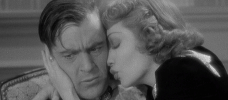
Bluebeard’s Eighth Wife
1938 -
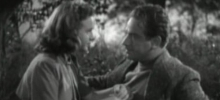
That Certain Age
1938 -

Midnight
1939 -
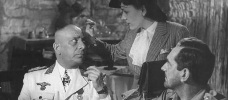
Five Graves to Cairo
1943 -
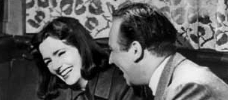
Ninotchka
1939 -
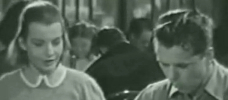
What a Life
1939 -
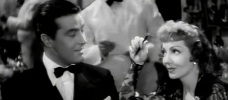
Arise My Love
1940 -
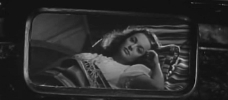
Hold Back the Dawn
1941 -
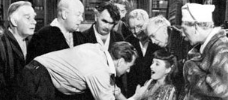
Ball of Fire
1941 -
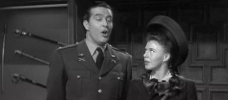
The Major and the Minor
1942 -
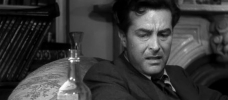
The Lost Weekend
1945 -
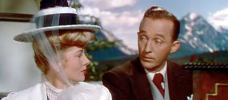
The Emperor Waltz
1948 -
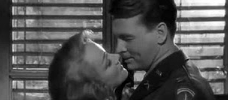
A Foreign Affair
1948 -
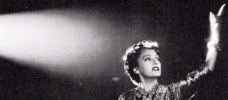
Sunset Boulevard
1950
We don’t do comments anymore, but you may contact us here or find us on Twitter or Facebook.



